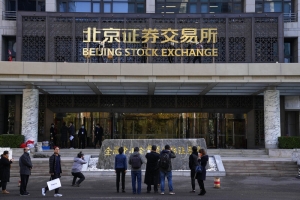With the arrival of the Beijing Stock Exchange, China now has a tripartite of financial centers on the mainland including Shanghai and Shenzhen, while Hong Kong remains the preferred offshore financial center. A Macau stock exchange may also be established one day as part of Beijing’s push to diversify the former Portuguese colony’s casino-gaming dependent economy. In sum, the Chinese government wants to construct what it hopes will be a synergistic capital markets ecosystem entirely under its control.
Beijing sees excessive risk in allowing too many listings (some are likely still inevitable) in New York by Chinese firms, both for user data reasons, and the potential for companies to be delisted under tougher U.S. auditing requirements.
While the Beijing Stock Exchange’s focus is different than the Shanghai STAR Board’s, the underlying message behind their creation is the same: Innovative Chinese enterprises should raise capital onshore whenever possible. China is not barring overseas listings, but it is making them much more difficult, especially for firms with troves of sensitive user data – just about any large tech company.
To access the Beijing Stock Exchange, individual investors must have a minimum of experience investing in securities while their recent stockholdings must be at least the equivalent of approximately US$78,000. These requirements are quite similar to those for retail investor participation in the Shanghai STAR Market.
On Monday, shares in 10 companies began trading for the first time on the Beijing Stock Exchange and 71 other stocks migrated from the over-the-counter market. At the close of trading Monday, the exchange’s market value was about US$45 billion, according to The Wall Street Journal. The top performer – and all 10 newly listed stocks surged in price, resulting in temporary trading halts – was the auto parts maker Henan Tongxi Transmission Co. When trading closed, the company’s market cap had jumped sixfold to US$373 billion.
At an opening ceremony for the Beijing Stock Exchange, Yi Huiman, chairman of the China Securities Regulatory Commission, said that it would “facilitate innovation-driven development and economic upgrading and transformation.”

